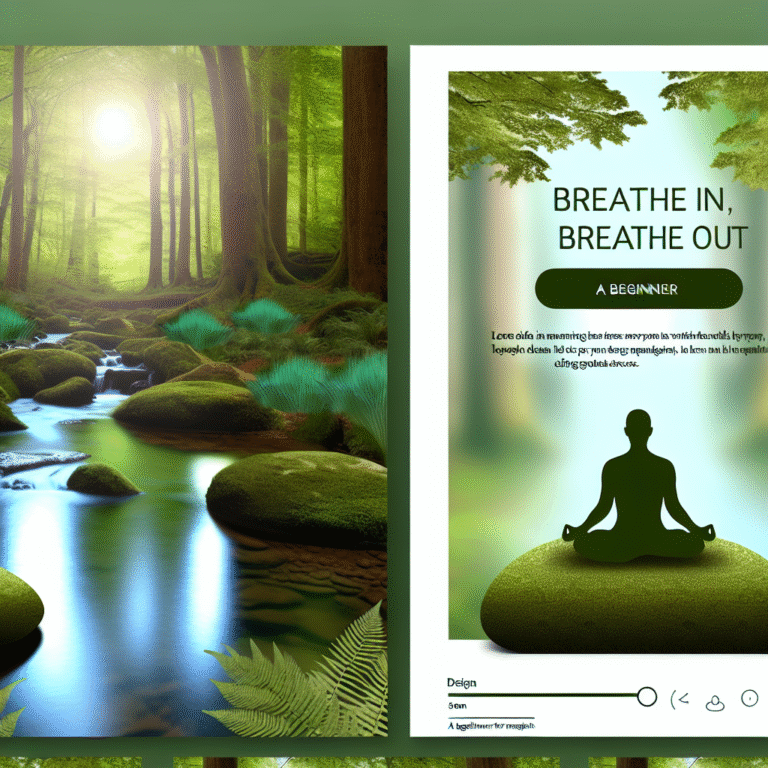
From Night Owl to Morning Person: Essential Sleep Hygiene Hacks for Better Rest
Introduction
Are you tired of feeling groggy in the morning and alert at night? You’re not alone. Millions of people find themselves identified as night owls, often struggling to transition to an early-to-bed, early-to-rise lifestyle. But what if we told you that with the right sleep hygiene hacks, you could transform from a night owl into a morning person? Embracing a structured approach to sleep can significantly enhance your quality of life—improving mood, productivity, and overall health. In this article, we’ll take an in-depth look into effective strategies and hacks that will help you achieve better rest and become the morning person you aspire to be.
Understanding Sleep Hygiene
Sleep hygiene refers to the habits and practices that are conducive to sleeping well on a regular basis. This includes your bedtime routines, the sleep environment, and lifestyle choices that can either enhance or hinder restful sleep. Sleep hygiene is not just about the quantity of sleep but the quality of sleep as well.
Why Sleep Hygiene Matters
The importance of good sleep hygiene cannot be overstated. Research shows that a consistent sleep schedule contributes to better mental and physical health. The CDC even notes that a lack of adequate sleep can lead to chronic health problems such as obesity, diabetes, and cardiovascular diseases.
Table 1: Benefits of Good Sleep Hygiene
| Benefit | Description |
|---|---|
| Enhanced Mood | Improves emotional stability and decreases irritability. |
| Increased Productivity | Better focus and more efficient work outputs. |
| Improved Physical Health | Lowers risk of various diseases and boosts immunity. |
| Better Cognitive Function | Enhances memory and decision-making skills. |
The Science Behind Night Owls and Morning People
Understanding your natural circadian rhythm is key to transitioning from a night owl to a morning person. Your body has a biological clock influenced by sunlight exposure and genetic predisposition. Night owls often have a delayed sleep phase—making it difficult for them to rise early.
Case Study: The Impact of Circadian Rhythm
A study conducted at the University of Munich revealed that night owls who shifted their sleep schedule to align more closely with societal norms experienced improved mood and cognitive function over just a few weeks. This case study exemplifies how sleep timing adjustments can yield significant results.
Sleep Hygiene Hacks for Better Rest
Let’s explore practical sleep hygiene hacks that everyone can implement to optimize their rest and make the nighttime-to-morning transition smoother.
1. Create a Consistent Sleep Schedule
One of the most effective ways to shift from being a night owl to a morning person is to establish a consistent sleep schedule. Aim to go to bed and wake up at the same time every day, even on weekends.
- Tip: Gradually adjust your sleep time by 15 minutes earlier every few nights until you reach your desired bedtime.
2. Optimize Your Sleep Environment
Your bedroom should be a sanctuary for sleep. Consider the following enhancements:
- Lighting: Use blackout curtains to eliminate light.
- Temperature: Keep your room cool (between 60°F – 67°F).
- Noise: Consider white noise machines or earplugs if you’re sensitive to sound.
3. Limit Exposure to Screens Before Bed
The blue light emitted by phones, computers, and TVs can disrupt melatonin production. Try to avoid screens at least one hour before sleeping.
- Tip: Replace screen time with relaxing activities such as reading or meditative breathing.
4. Incorporate Relaxation Techniques
Engaging in relaxation techniques can prepare your mind and body for sleep. Consider options such as:
- Gentle Yoga: Helps release physical tension.
- Meditation: Calms the mind and reduces stress.
Case Study: Relaxation Techniques in Action
A clinical trial at a New Zealand university studied the effects of a six-week yoga program on participants who identified as night owls. Those who practiced yoga regularly reported better sleep quality and reduced insomnia symptoms, demonstrating the power of relaxation in achieving restful sleep.
Nutrition and Its Impact on Sleep
Your diet can significantly affect your sleep. Avoid heavy meals, caffeine, and alcohol close to bedtime. Instead, consider snacks that promote sleep, like almonds or chamomile tea.
Table 2: Foods That Promote Sleep vs. Foods to Avoid
| Foods That Promote Sleep | Foods to Avoid |
|---|---|
| Almonds | Caffeinated drinks (tea, coffee) |
| Chamomile tea | Heavy meals |
| Kiwi | Alcohol |
| Bananas | Sugary snacks |
The Role of Physical Activity
Regular exercise can help you fall asleep faster and enjoy deeper sleep. Aim for at least 30 minutes of moderate exercise most days, but avoid vigorous workouts close to bedtime.
Case Study: Exercise and Sleep Quality
A comprehensive study from Harvard found that participants who incorporated regular exercise into their routine reported better sleep quality and were able to fall asleep significantly faster compared to those who did not exercise. Whether it’s a brisk walk or an evening run, physical activity can be a game-changer for transitioning from a night owl to a morning person.
Implementing a Gradual Transition
It’s important to note that changing sleep routine takes time and patience. Here’s a step-by-step plan to help you move toward becoming a morning person:
- Week 1: Go to bed 15 minutes earlier than usual.
- Week 2: Adjust your wake time accordingly, keeping the 15-minute changes.
- Week 3: Continue this pattern until you reach your target sleep schedule.
- Throughout: Apply the above-mentioned sleep hygiene hacks consistently.
Motivational Takeaway
Embrace the process! Transitioning from night owl to morning person is about gradual adjustments rather than overnight changes. Celebrate small victories along the way, and soon, waking up early may become second nature.
Conclusion
The journey from being a night owl to embracing the morning can seem daunting, but with the right sleep hygiene hacks, it is entirely achievable. By understanding and implementing consistent sleep routines, optimizing your environment, and making lifestyle changes, you can significantly improve your quality of rest. Remember, better sleep leads to better health—a truly rewarding transformation that can enhance every aspect of your life.
FAQs
1. How long does it take to adjust to a new sleep schedule?
Adjusting to a new sleep schedule typically takes about 1-2 weeks, depending on how drastic the change is and your body’s responsiveness.
2. What should I do if I wake up during the night?
If you wake up during the night and can’t fall back asleep, get out of bed and do something relaxing in dim light until you feel sleepy again.
3. Can napping help or hurt my transition to a morning person?
Short naps (20-30 minutes) can be refreshing, but avoid longer naps, especially late in the day, as they may interfere with nighttime sleep.
4. What if I have a job that requires me to stay up late?
If your job requires you to work late hours, it’s essential to prioritize sleep hygiene during your off time to mitigate sleep deprivation effects.
5. Are there any supplements that can help improve sleep?
Some people find melatonin or magnesium helpful, but consult with a healthcare professional before starting any new supplement regimen, especially for sleep issues.
By following these sleep hygiene hacks, you can confidently transition from night owl to morning person, reaping the numerous benefits that come with better rest. Make this positive change for yourself today!

















